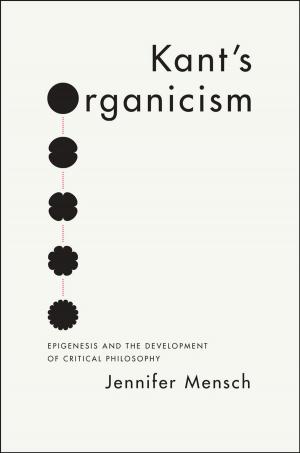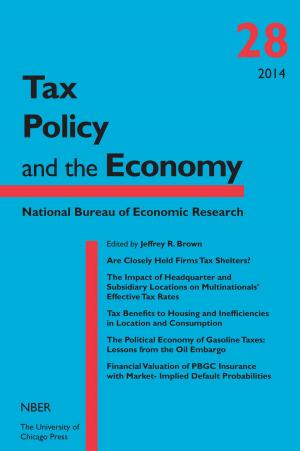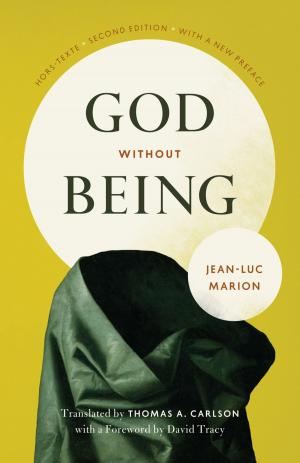The Science of Stress
Living Under Pressure
Nonfiction, Science & Nature, Science, Biological Sciences, Biochemistry, Human Physiology| Author: | ISBN: | 9780226338729 | |
| Publisher: | University of Chicago Press | Publication: | October 24, 2016 |
| Imprint: | University of Chicago Press | Language: | English |
| Author: | |
| ISBN: | 9780226338729 |
| Publisher: | University of Chicago Press |
| Publication: | October 24, 2016 |
| Imprint: | University of Chicago Press |
| Language: | English |
Our jobs and families; the deluge of e-mails, texts, and calls; the constant pinch on our time and money; the screaming match of politics and the threat of terrorism and war—there is no doubt about it, we are completely stressed out. Most of the time, we just shrug it off, but as neuropsychiatrists Gregory L. Fricchione, Ana Ivkovic, and Albert Yeung gently remind us in this book: stress can be really, really bad for our health. In fact, persistent stress is directly linked to chronic ailments like heart disease, diabetes, and depression, contributing to one of the biggest health challenges facing the world in the twenty-first century. Expertly but sensitively guiding readers through the latest research in the science of stress, they offer an illuminating and therapeutic look at our own worst enemy.
As Fricchione and his colleagues show, alleviating stress is a task that no one physician can alleviate for us on his own. It is not the sort of problem that a surgeon can excise with a scalpel or an internist can eradicate with antibiotics. It requires everyone’s efforts—the healthy, the sick, doctors, nurses, psychologists, clergy, community leaders, and everyone else—to pull together to address the stress-induced drivers in our community that undermine our health. Clearly and accessibly exploring the latest in modern neuroscience and immunology, the authors examine what those drivers are and how they reduce the body’s metabolic reserve, making us more vulnerable to illness. They then look at the antidote: enhanced resilience, something we can achieve by smartly adjusting how we face the significant adversities that can spring up in so many facets of our lives.
Offering innumerable insights on the personal and social causes of stress and the physiological effects they have, this book serves as an essential guide to show us how to alleviate stress and properly take care of ourselves. In doing so, it offers a crucial first step toward meeting the biggest health challenge of this century.
Our jobs and families; the deluge of e-mails, texts, and calls; the constant pinch on our time and money; the screaming match of politics and the threat of terrorism and war—there is no doubt about it, we are completely stressed out. Most of the time, we just shrug it off, but as neuropsychiatrists Gregory L. Fricchione, Ana Ivkovic, and Albert Yeung gently remind us in this book: stress can be really, really bad for our health. In fact, persistent stress is directly linked to chronic ailments like heart disease, diabetes, and depression, contributing to one of the biggest health challenges facing the world in the twenty-first century. Expertly but sensitively guiding readers through the latest research in the science of stress, they offer an illuminating and therapeutic look at our own worst enemy.
As Fricchione and his colleagues show, alleviating stress is a task that no one physician can alleviate for us on his own. It is not the sort of problem that a surgeon can excise with a scalpel or an internist can eradicate with antibiotics. It requires everyone’s efforts—the healthy, the sick, doctors, nurses, psychologists, clergy, community leaders, and everyone else—to pull together to address the stress-induced drivers in our community that undermine our health. Clearly and accessibly exploring the latest in modern neuroscience and immunology, the authors examine what those drivers are and how they reduce the body’s metabolic reserve, making us more vulnerable to illness. They then look at the antidote: enhanced resilience, something we can achieve by smartly adjusting how we face the significant adversities that can spring up in so many facets of our lives.
Offering innumerable insights on the personal and social causes of stress and the physiological effects they have, this book serves as an essential guide to show us how to alleviate stress and properly take care of ourselves. In doing so, it offers a crucial first step toward meeting the biggest health challenge of this century.















